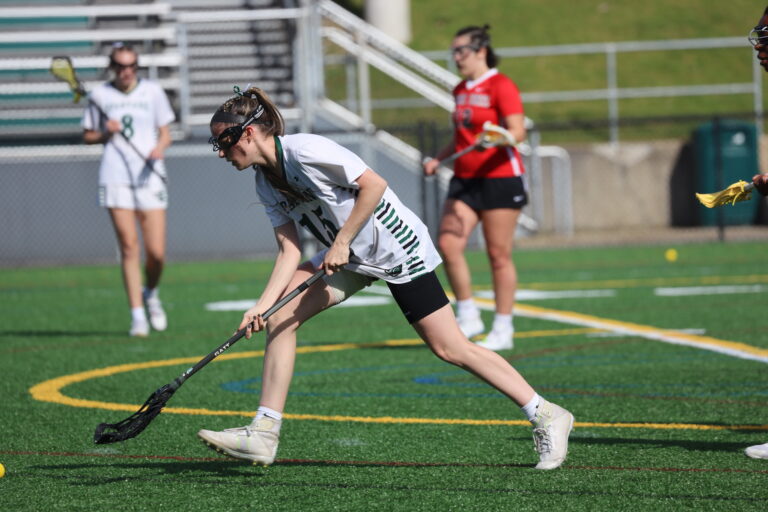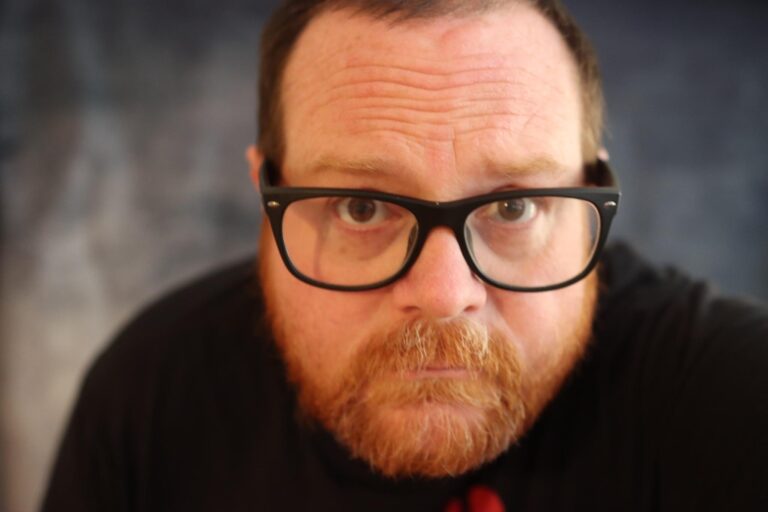Traci Molloy’s powerful art back on campus
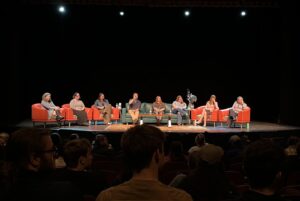
In a powerful gathering at Casella Theater, Vermont State University Castleton hosted a panel on April 16, led by Traci Molloy, the artist behind the evocative “Against my Will” art projects.
“Art is its language. You can see it and feel it. When you’re a baby, you learn through the language of the arts before we can even speak it,” Molloy said to the audience.
Molloy’s work, which lines the campus walkways with shadowed headshots of anonymous VTSU Castleton sexual assault survivors, set the stage for a candid discussion on the prevalence and response to sexual assault.
The atmosphere was heavy with both sorrow and determination as attendees listened to Malloy’s introduction.
She set the scene with a quick activity to show the crazy statistics of sexual assault. Molloy made all the women in the audience stand and count off by fours. She then made everyone but the groups of ones sit down.
“One out of every four women will experience some sort of sexual assault in their lifetime,” Molloy said.
She then did the same for men, saying statistics show one out of every seven men will experience sexual assault. As her words settled in, the faces in the audience reflected a mixture of empathy, disbelief, and resolve.
The panel was composed of students, professors and specialists. It included art professor Oliver Schemm, sociology professor Linda Olson, two current students, an alumnus and a sexual assault specialist, who stood as a collective voice for the silenced survivors.
However, the discussion quickly turned somber as the panelists addressed the inadequacies in the university’s response to sexual assault cases.
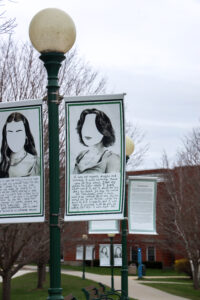
“The school has done a very poor job of handling things. You had to go through five or six clicks from the home page to report a sexual assault,” said a student panelist named Izzy, who didn’t share her last name. “We met with the head of Public Safety and we were dismissed, they did not care. The individual professors are supportive, but the higher-ups are not.”
Keith Molinari, the head of Public Safety at VTSU Castleton, was asked if he wanted to react to Izzy’s comment from the panel. He responded via email that he appreciated the Spartan’s effort to seek a comment from him, but he chose not to.
Olson also commented at the panel on her thoughts of the university’s actions towards sexual violence cases.
“I think we’re going backward. It’s going to harm survivors on this campus. There’s a culture of silence. I was living in it for decades. The university is not listening to those who are survivors and who know a lot about this topic. We need to hear from students on what’s important to support survivors,” Olson said.
Izzy went on to talk about, how now with the merging into Vermont State University, sexual assault cases are easier to fall through the cracks.
The panelists were painting a grim picture of systemic failures. Their words were not merely criticisms; they were pleas for change, a demand for institutions to do better by survivors.
One of the current students on the panel, bravely vocalized her discomfort with the event’s mandatory attendance for some, expressing that survivors should not be subjected to an audience of disinterested students. Her sentiment resonated with many, which sparked a wave of introspection among the attendees.
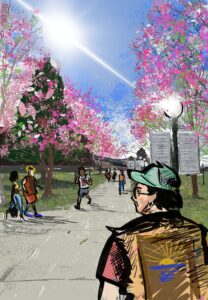
“Making this a Soundings event takes away comfort. It doesn’t mean anything to me if I see football players show up because their coach told them to go,” Izzy said.
Molloy responded with understanding, but also offered a different viewpoint on the situation.
“There are people here that wouldn’t usually come, but we need to reel people in. We have to have shifts occur,” she said.
Throughout the rest of the panel, the shadows of anonymity cast by Molloy’s art project served as a reminder of the countless untold stories of survival and resilience. Each face, though obscured, carried the weight of trauma and the courage to stand in solidarity with fellow survivors.
As the panel drew to a close, there was a sense of urgency in the air—a call to action to dismantle the structures that are around sexual violence and to create a campus culture that prioritizes safety, support, and justice.
The echoes of the panel discussion lingered long after the last person had left Casella Theater, serving as a stark reminder that the fight against sexual assault is far from over.
But amidst the frustration, there is always a glimmer of hope—a belief that by shining a light on the shadows of silence, real change can be ignited, and survivors can find the healing and justice they deserve.

